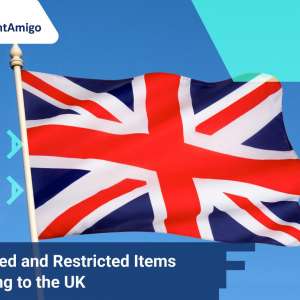Importing goods into a foreign country requires a thorough understanding of the regulations and restrictions in place. France, as one of the leading economies in the world, has a highly developed and diverse market for imports. However, it is crucial for importers to be aware of the goods that are prohibited or restricted from being imported into the country. In this comprehensive guide, we will explore the prohibited and restricted items for importing into France and provide practical tips for successful importation.
Latest update on 1 March, 2024 by Aurora Park – Marketing Analyst at FreightAmigo
Want to compare the best Express, Air Freight, Sea Freight, Rail Freight & Trucking rates so as to have better control on cost?
Understanding the French Import Landscape
France imports a wide range of products, including mechanical, electronic, and computer equipment, transport equipment, chemicals, and agro-food industry products. These imports come from various countries, with Germany, China, Italy, and Belgium being key partners in French imports. To ensure the safety, security, and ecological balance of the country, certain goods are either completely prohibited or subject to specific restrictions for importation.
Prohibited Goods for Import into France
Certain goods are completely prohibited from being imported into France. These prohibitions are in place to protect society, the environment, and national security. Here are some key items that fall under this category:
- Illegal drugs and narcotics: Any substance classified as a drug under French law is strictly prohibited from importation.
- Offensive weapons and ammunition: Automatic firearms, switchblade knives, and other offensive weapons are forbidden from being imported.
- Counterfeit goods and piracy: Unauthorized copies of copyrighted materials or counterfeit goods that infringe upon intellectual property rights are prohibited.
- Endangered species and their products: Products made from species listed in the Convention on International Trade in Endangered Species of Wild Fauna and Flora (CITES) are prohibited.
- Certain types of hazardous waste: Waste that could pose a risk to public health or the environment is prohibited from importation.
Restricted Goods for Import into France
In addition to prohibited goods, certain items are subject to restrictions and can only be imported under specific conditions. These restrictions are in place to ensure public safety, health, and environmental compliance. Here are some key items in this category:
- Food products: Many food products require health checks upon entry into France. Importers may need to obtain health certificates or undergo specific inspection procedures.
- Plants and plant products: Plant items often require a phytosanitary certificate to ensure they are free from harmful pests and diseases.
- Animal and animal products: Similar to plant products, animal items require health certificates and may undergo checks to prevent the spread of diseases.
- Pharmaceuticals: Pharmaceuticals need to comply with strict regulations for importation, ensuring they meet health and safety standards.
- Art, Antiques, and cultural goods: These goods often require a special license or documentation to prove their provenance and legality.
Conclusion
Importing goods into France offers numerous opportunities for businesses worldwide. However, it is crucial to navigate the regulatory landscape effectively by understanding the prohibited and restricted items for importation. By staying informed, complying with regulations, and seeking the assistance of specialists, importers can mitigate potential risks and maximize the potential offered by the French market.
There are different options for cargo transportation. If you want to choose the most convenient and suitable solution, it is best to have the full support of logistics experts! If you are planning to import to France, please go to the FreightAmigo page for inquiries.
If you have any inquiries on logistics/supply chain, feel free to contact FreightAmigo now:
Chat with us online | Hotline: +852 28121686 | WhatsApp: +852 27467829









































